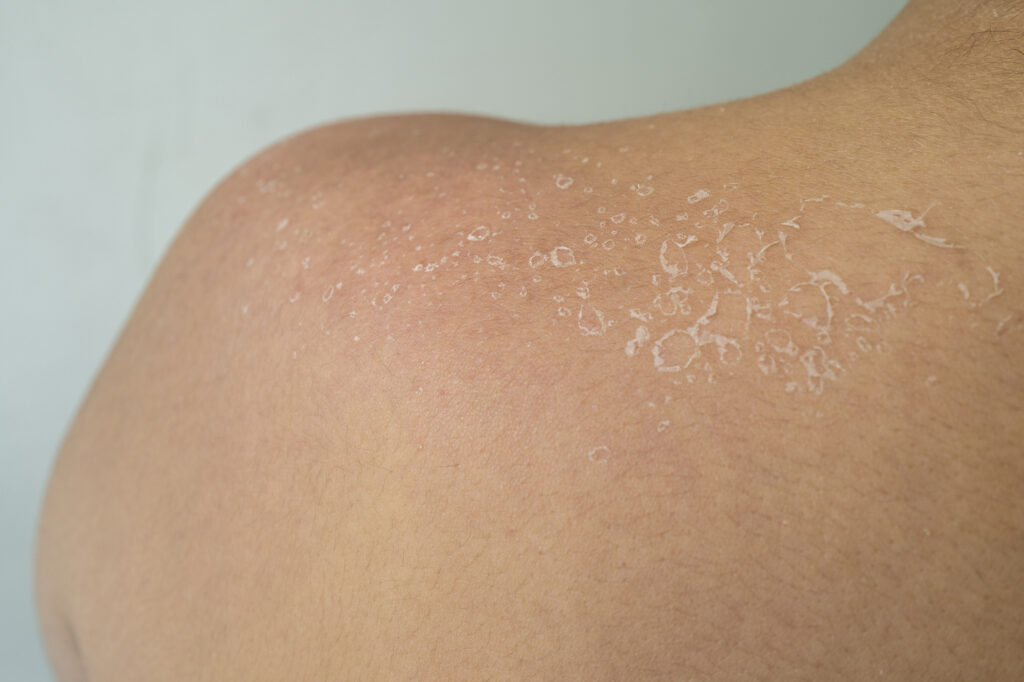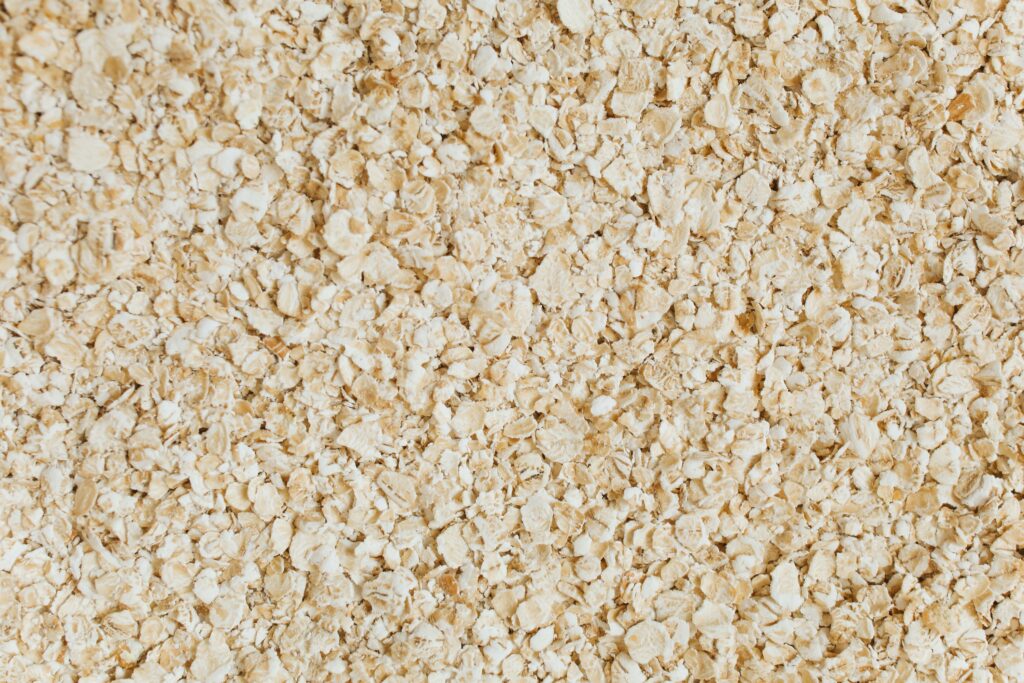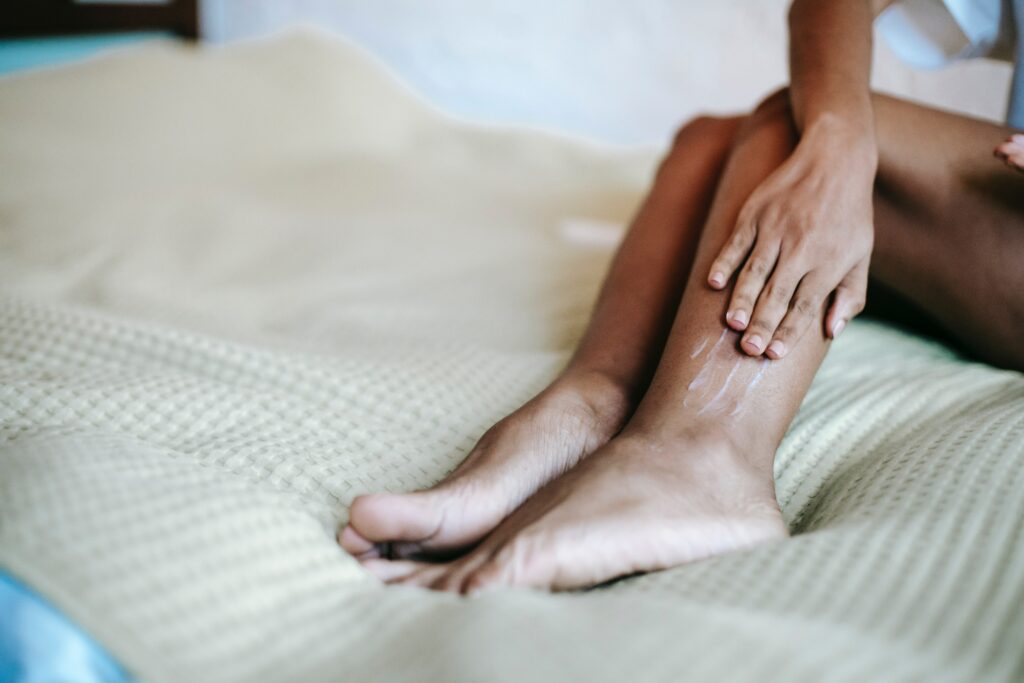Dry Skin
Do you suffer from dry skin?
If so, you are far from alone.
Although much more prevalent in people aged 60 and over, dry skin can affect people of all ages, causing discomfort, irritation and frustration.
Whether you struggle with dry skin during winter, dry skin patches on the body or you have had severe dry skin for a long time, there are many highly effective treatments available, many of which can be bought over the counter without the need for a prescription.
Read on to discover:
- What is dry skin?
- What causes dry skin?
- Who is most at risk of dry skin?
- How to diagnose dry skin
- What is the best very dry skin treatment?
- What are the best home remedies for dry skin?
- Are there any possible complications of dry skin?
- When to see your doctor about dry skin
- How to prevent dry skin
- Dry skin FAQs
What is dry skin?
Dry skin occurs due to a lack of moisture and natural oils in the skin. Symptoms of dry skin can range from mild to severe and often include:
- Patches of itchy or scaly skin
- Flaky skin that has a rough texture
- Cracks in the skin
- Skin that stings or burns
- Peeling skin
- Loose or wrinkled skin
Mild cases of dry skin are very common, especially during winter, and can be treated with OTC skincare products. However, chronic dry skin or extra dry skin can take longer to heal. Read on to learn more about what causes excessive dryness of skin and the best remedy for dry skin.

What causes dry skin?
There are many different causes of dry skin, some of which are environmental and others that are lifestyle-related.
The most common causes of dry skin are:
Dehydration
If you are dehydrated, your whole body is affected, including your skin. The simplest way to avoid becoming dehydrated is to drink the recommended daily intake of water each day.
Eczema
If you have eczema, then you are highly likely to experience eczema dry skin, which is typically itchy, inflamed and dry.
There are many different types of eczema, including atopic dermatitis, contact dermatitis and seborrheic dermatitis.
Diabetes
People with diabetes are prone to developing skin conditions such as really dry skin, particularly on the hands and feet. If you allow your blood sugar levels to get too high, this can cause dry skin.
Kidney disease
One of the jobs of the kidneys is to remove waste and excess fluid from the body. If your kidneys are not working as they should be, this can cause excessive urination, which can lead to dry skin.
Anorexia
When you have an eating disorder, such as anorexia, your body often lacks key nutrients, vitamins and minerals. This can cause dry skin all over the body.
Harsh chemicals
If you use harsh cleaning products, deodorants or other skincare creams on your skin, this can result in dry skin. This is particularly likely to occur in people with sensitive skin.
Cold, dry climates
If you live in a cold and dry climate, you are much more likely to develop dry skin. This is also the case if you frequently expose your skin to heat sources such as central heating and wood-burning fires.
Hot showers or baths
Regularly taking long and hot showers or baths can cause the skin to dry out which, over time, can lead to super dry skin.
Who is most at risk of dry skin?
Although anyone can be affected by dry skin, the below groups are more at risk of developing this affliction:
- People over 40 years of age
- People with brown, black or fair skin
- People who work in professions where their hands are submerged in water
- People who live in colder climates
- People who smoke
How to diagnose dry skin
In most cases, dry skin can be diagnosed without the need to see your doctor or a dermatologist. If you have any of the above-listed symptoms of dry skin, then you are highly likely to have this condition.
If you think you may have an underlying skin condition that is causing your dry skin, such as eczema or psoriasis, then it can be a good idea to make an appointment with your GP for an official diagnosis and recommended treatment plan.
What is the best very dry skin treatment?
There are several over-the-counter treatments that are designed to hydrate and heal extremely dry skin.
When it comes to the best thing for dry skin, some of the most effective treatments for dry skin are:
Moisturisers
Moisturisers are the most commonly used extreme dry skin treatment and you can find moisturising creams for all skin types.
Moisturisers are designed to soften and smooth the skin and to prevent dry skin from splitting or cracking.
As a cure for dry skin, a quality moisturiser is the most effective treatment for mild dry skin, extra dry skin and really dry skin.
If you suffer from dry skin on your feet, CCS Foot Care Cream is one of the leading moisturisers for the feet, and it can also be used on other parts of the body that are affected by dry skin.
Topical steroids
If you suffer from severe dry skin that is not responding to other treatments, then your doctor may prescribe a topical steroid cream. This works to reduce inflammation and itching which can lead to dry skin.
In very severe cases, your doctor may recommend an oral or injectable form of steroids.
What are the best home remedies for dry skin?
When it comes to taking care of dry skin at home, there are several dry skin remedies that you can try. The most popular home remedies for dry skin are:
Coconut oil
Coconut oil is an emollient, which means that it works to fill the spaces between skin cells and create a smooth skin surface. Coconut oil is a good dry skin treatment for people with sensitive skin.
To use coconut oil for dry skin, simply apply it to the affected area and allow it to be absorbed.
Petroleum jelly
If you have a dry spot on skin, such as on your elbows, knees or heels, petroleum jelly is an effective treatment for this. A type of mineral oil, petroleum jelly gives the skin a protective layer, which can help to heal very dry patches of skin.
To use petroleum jelly for dry skin, apply it to the affected area. Do not rinse off.
Oatmeal bath
Colloidal oatmeal contains antioxidants and anti-inflammatory properties which can help to calm and soothe irritated and dry skin.
To make an oatmeal bath for dry skin, add fine oatmeal powder to a warm bath and soak for 15-20 minutes.

Are there any possible complications of dry skin?
Although complications are rare, untreated dry skin can lead to the following complications:
- Dry skin infection
- Permanent discolouration
- Permanent itching
- Permanent thickened patches on the skin
Winter care for dry skin
If you suffer from dry skin in the winter, then there are several things that you can do to protect your skin and keep it hydrated during the colder months of the year.
Read on for our top winter dry skin remedy:
- Stay hydrated
- Swap to an oil-based moisturiser
- Keep moisture in your home with a humidifier
- Eat foods that have a high water content, such as cucumber and celery
- Take an omega-3 supplement
- Turn down the central heating
- Use a gentle exfoliator once a week
When to see your doctor about dry skin
If you have tried over-the-counter remedies for dry skin and taking care of dry skin with lifestyle changes but you are still suffering from dry skin, then you should make an appointment with your doctor or a dermatologist.
If your skin is red, inflamed, swollen or painful, you should also seek medical attention, as your skin may have become infected.
How to prevent dry skin
To prevent dry skin, there are several skincare practices and lifestyle changes that you can adopt. These include:
- Shower or bathe in warm water
- Limit your showers and baths to 15 minutes
- Use gentle, fragrance-free cleaning products
- Pat your skin dry rather than rub it
- Apply a moisturiser to the skin while it is still damp
- Do not sit too close to radiators or open fires
- Drink seven to eight glasses of water per day
- Eat foods that are high in antioxidants, such as tomatoes, berries and lentils
- Wear gloves if you work with irritants
- Use a humidifier
- Manage your stress levels

Frequently asked questions
How to get rid of dry skin?
The most effective way to get rid of dry skin is by applying a moisturising cream to the affected areas. This should be applied after showering or bathing while the skin is still damp. If you have dry skin on specific areas of your body such as on the hands or feet, look for a moisturising cream, such as CCS Foot Care Cream or Vaseline Intensive hand cream.
Why is my skin so dry?
The most common causes of dry skin are cold and dry weather, dehydration and skin conditions such as eczema. You are also more at risk of dry skin if you are aged over 40, you have diabetes or you are a smoker.
Why is my skin so dry even when I moisturize?
If you suffer from severely dry skin, then a moisturiser may not be enough to keep your skin soft and smooth. In this case, an extreme dry skin treatment may be needed, such as a topical steroid cream that needs to be prescribed by your doctor. Dry skin can also occur due to contact with external irritants such as harsh cleaning products or chemical detergents.
What causes dry skin?
The main causes of dry skin are cold, dry weather, dehydration, diabetes and underlying skin conditions, such as eczema or psoriasis. Dry skin can also occur when your skin is exposed to chemicals, such as cleaning products, or if it is frequently submerged in water. If you are unsure what is causing your dry skin, it can be a good idea to make an appointment with your doctor to discuss possible causes.
How to treat dry skin?
Dry skin can be treated with an over-the-counter dry skin treatment, such as an intense moisturising cream or ointment. Certain lifestyle changes, such as not taking hot showers or baths, using non-chemical cleaning products and using a humidifier, can also help to treat and prevent dry skin.
How to stop dry skin?
While it is not always possible to stop dry skin entirely, there are preventative measures that you can take to reduce your risk of developing dry skin, such as moisturising daily, avoiding hot showers and baths and using a humidifier to keep moisture in your home. If your dry skin is caused by an underlying skin condition, such as eczema or psoriasis, you will need to seek the appropriate treatment for these to stop your dry skin.
No products found